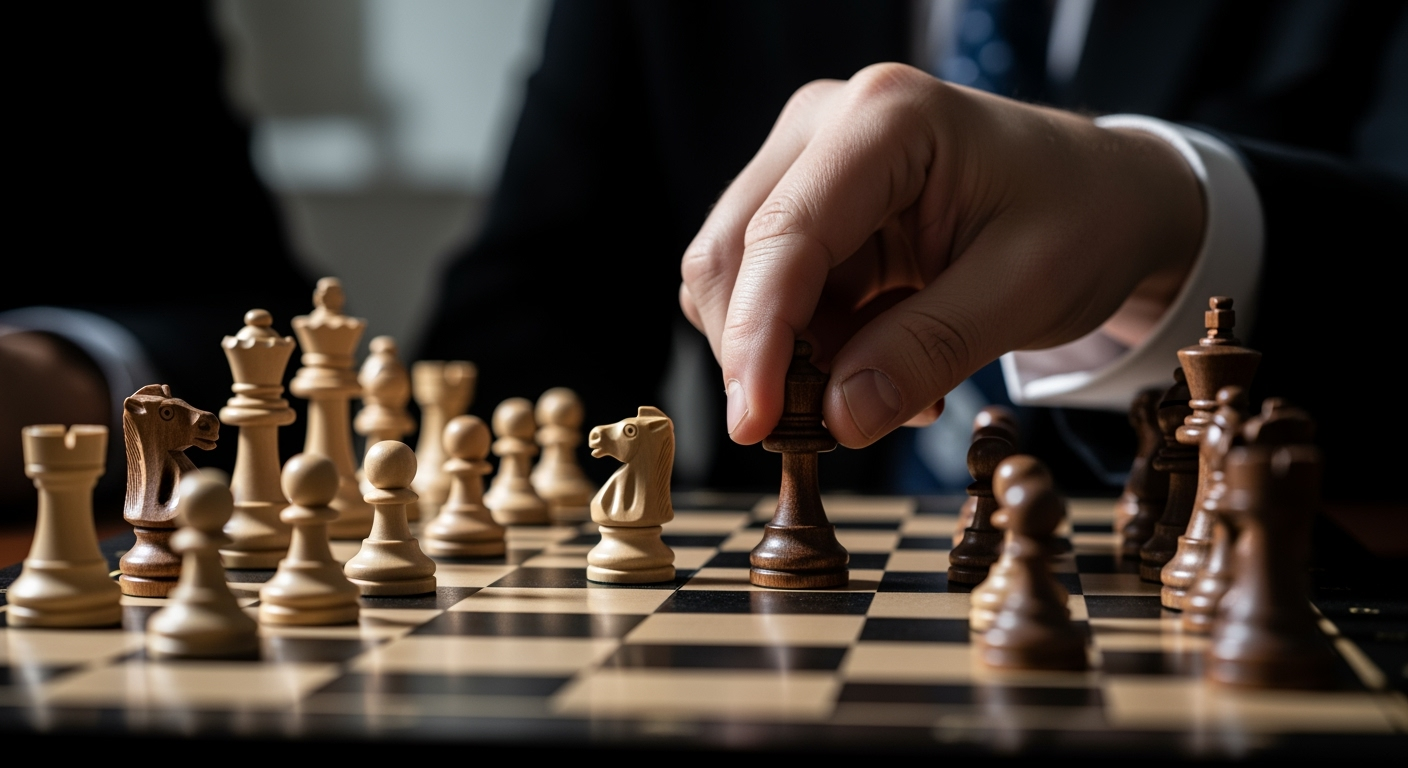Related Articles

Germany's Syrian Deportation Plan: A Tightrope Walk Between Politics and Harsh Realities




Washington D.C. — The Trump administration's recent confirmation of authorized Central Intelligence Agency (CIA) covert operations in Venezuela, alongside a series of deadly maritime strikes, has significantly intensified its pressure campaign against the Nicolás Maduro government, reigniting a contentious debate about U.S. interventionism in Latin America. Critics view these aggressive tactics as a modern manifestation of historical U.S. meddling in the region, while the administration frames its actions as a necessary effort to combat drug trafficking and support democracy.
President Donald Trump recently confirmed that he authorized the CIA to conduct covert operations within Venezuela, a rare public admission for such sensitive directives. This revelation followed a series of military strikes on alleged drug smuggling boats off Venezuela's coast, operations that have reportedly resulted in at least 27 fatalities. The administration has justified these actions by claiming Venezuela is "emptying their prisons into the United States" and that a significant volume of drugs is originating from the country. The ultimate goal, according to some officials, remains regime change in Caracas.
Beyond covert actions, the U.S. has significantly increased its military presence in the Caribbean, deploying thousands of troops, eight warships, a nuclear-powered submarine, and B-52 bombers that have conducted flights near Venezuelan airspace. The administration has also doubled a reward for information leading to Maduro's arrest to $50 million, accusing him of heading a drug cartel. These measures underscore a strategy, heavily influenced by Secretary of State Marco Rubio, that reframes intervention in Venezuela as a fight against drug kingpins threatening American streets rather than solely a push for democracy.
The Trump administration's policy towards Venezuela has been characterized by a multi-pronged approach combining diplomatic isolation, economic sanctions, and the explicit recognition of an opposition leader. In January 2019, the U.S. officially recognized Juan Guaidó, then president of Venezuela's National Assembly, as the interim president of Venezuela, asserting that Nicolás Maduro's 2018 reelection was illegitimate. This move was supported by over 50 other nations and marked a significant diplomatic break with Caracas.
Economically, the U.S. has imposed extensive sanctions targeting key sectors of the Venezuelan economy and numerous individuals. Beginning in August 2017, sanctions prohibited Venezuela's access to U.S. financial markets, expanding in May 2018 to block the purchase of Venezuelan debt. In January 2019, during the presidential crisis, additional sanctions were applied to individuals and companies in the petroleum, gold, mining, and banking industries, including the state-owned oil company PDVSA. U.S. officials have also sanctioned specific Venezuelan government entities and individuals associated with the Maduro administration, including members of the Supreme Tribunal of Justice, the Constituent National Assembly, and military and security forces, citing human rights abuses and corruption. In 2020, the U.S. Justice Department indicted Maduro and several high-ranking government officials on narco-terrorism charges.
The aggressive posture adopted by the Trump administration has inevitably drawn comparisons to a long and often controversial history of U.S. intervention in Latin America. Critics argue that the current actions echo past instances where Washington has sought to influence political outcomes in sovereign nations to protect its interests. Historically, the U.S. has involved itself in the internal affairs of Latin American nations since the early 19th century, frequently to support economic interests or align with right-leaning forces.
Notable examples include CIA-backed coups in Guatemala in 1954 and a period of military interventions in Central America and the Caribbean during the early 20th century to protect U.S. business interests. More recently, the U.S. has been accused of at least tacit backing of coup attempts in Venezuela in 2002 and Honduras in 2009. Venezuelan President Nicolás Maduro has explicitly accused the U.S. of attempting to orchestrate a coup against him, a claim that resonates in a region with a deep collective memory of such interventions. The current deployment of U.S. naval forces in the Caribbean, the largest since 1994, further amplifies concerns about "gunboat diplomacy".
The Trump administration's "Venezuela push" is subject to varied interpretations and significant criticism. While the administration asserts its actions are primarily aimed at countering drug trafficking, many analysts and regional leaders contend that the underlying objective is regime change. Samuel Moncada, Venezuela's ambassador to the UN, has argued that the U.S. military deployment is a "massive propaganda operation" to fabricate a conflict and seize Venezuela's oil wealth. Venezuela holds the world's largest proven oil reserves, and the nationalization of its oil sector under former President Hugo Chávez had displaced U.S. corporations.
The economic sanctions, while intended to pressure the Maduro government, have also been criticized for exacerbating a severe humanitarian crisis within Venezuela, where over three million people have fled the country, and widespread shortages of basic goods, medicines, and food are reported. Critics argue that deliberately worsening living conditions to induce regime change through sanctions is a controversial tactic.
Moreover, the authorization of lethal covert operations and military strikes has been condemned by some as illegal and a dangerous precedent. The lack of clear evidence provided by the U.S. for some of its claims, such as the direct link between alleged drug boats and "narco-terrorists," has fueled skepticism. The strategic focus, heavily influenced by figures like Marco Rubio, is seen by some as an ideological drive to topple leftist authoritarians in Latin America.
The current escalation poses a significant risk of further destabilization in the region. The Venezuelan government, in response, has activated national defense operations, conducted large-scale military exercises, and mobilized millions of militia members, signaling a firm stance of resistance. The ongoing tensions underscore a complex geopolitical struggle with deep historical roots and potentially far-reaching implications for Venezuela and the broader Latin American continent.